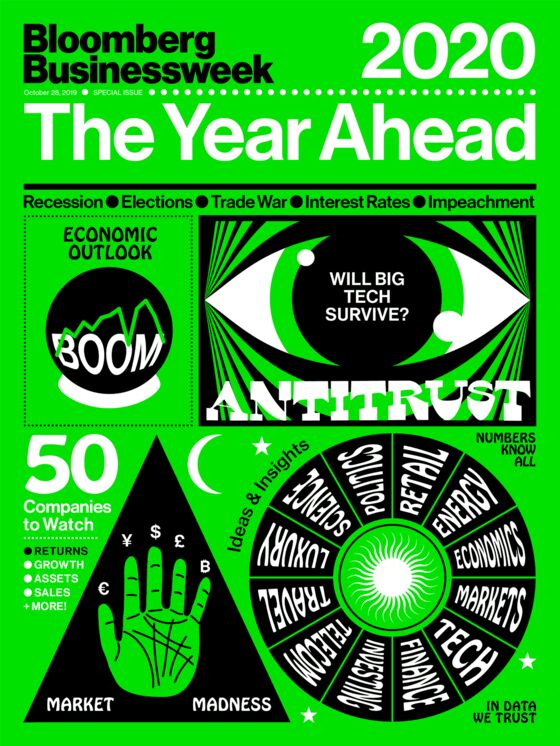Where Howard Marks Looks for Signs of Market Trouble
The co-chairman of Oaktree Capital says he worries when people start clamoring to get into risky investments.

(Bloomberg Businessweek) -- The last cycle ended in the biggest economic collapse since the Great Depression. How do you think this one will end?
The last one was marked by great excesses, not in the real economy but in the financial world. This time, I don’t see systemic excesses like those. The financial institutions are somewhat chastened by their experiences of 10 years ago. They haven’t been permitted to get nearly as levered as in the past, and they haven’t been permitted to engage in the same risky behavior. I don’t like to make predictions—and I never say never—but I don’t think we’re heading for a crash of similar proportions.
What are the signs that an investor should stop putting money to work and wait for prices to correct?
Too much optimism; too much risk tolerance; people believing that the more risk they take, the more money they’ll make. You can see signs of that: money piling up in alternative and illiquid investments. When investors fall over themselves to supply money for risky ventures, that’s the kind of thing one should look for.
Funds have tens of billions of dollars on the sidelines—so-called dry powder—waiting to pounce if credit markets do correct. Won’t that make it difficult for investors such as Oaktree to buy debt at attractive prices?
That’s what they always say. They always say that nothing is going to get very cheap, because there are so many buyers and so much money. My experience is that when the stuff hits the fan, a good number of those people with a bunch of the money, rather than rush into the burning building, back away. You know the expression: “We’re not going to try to catch a falling knife.” We believe it’s our job to catch falling knives—carefully. We bought more than a half a billion dollars of securities every week in the last 15 weeks of 2008, following the Lehman Brothers bankruptcy. And that was a great thing to do. If you waited until 2009, it was too late.

Low interest rates have forced savers to reach for yield. What will the consequences of that behavior be when the economy slumps?
You can accept a minuscule return safely, or you can pursue a high return by absorbing increased risk. Some institutional investors like pension funds and endowments, which have a required rate of return, don't have the option of taking door No. 1. When the times get tough, some of them will turn out to have made bad decisions, and the risky securities that they bought for the high returns will not prosper. That’s why they’re called risky.
By some measures, there’s a record amount of corporate debt, much of it raised to finance and refinance leveraged buyouts. Is that a cause for concern?
The record amounts of debt and unusually high leverage ratios imply that eventually there will be a bunch of defaults and a bunch of bankruptcies, as there always have been in the three debt crises that I’ve lived through in the last 30 years.
You’ve taken issue with the idea that the Fed should try to prolong the economic expansion. What’s wrong with avoiding recession?
My question is: Can you do it forever? And if you can’t do it forever, is having it happen next year better than having it happen this year? And if you put it off from this year to next year through stimulus, is the one that happens next year likely to be worse than the one that would’ve happened this year? I believe that the Fed should produce economic growth and job creation over time. Over time doesn’t mean all the time. Over time doesn’t mean every year. Over time doesn’t mean there can’t be a recession.
Can you make a case for investing in negative yielding debt?
To buy a negative yielding bond is to guarantee a loss. The future has to be really terrible in order for you to be willing to sign on for an investment in which you’ll lose money.
Why do you think Elizabeth Warren in particular is so feared on Wall Street?
She’s a populist and a redistributor. The combination of the chance that she’ll get the job and her inclination to go after business and Wall Street and people who’ve been financially successful—that combination is rather daunting.
This interview has been edited for length and clarity
To contact the editor responsible for this story: Pat Regnier at pregnier3@bloomberg.net
©2019 Bloomberg L.P.